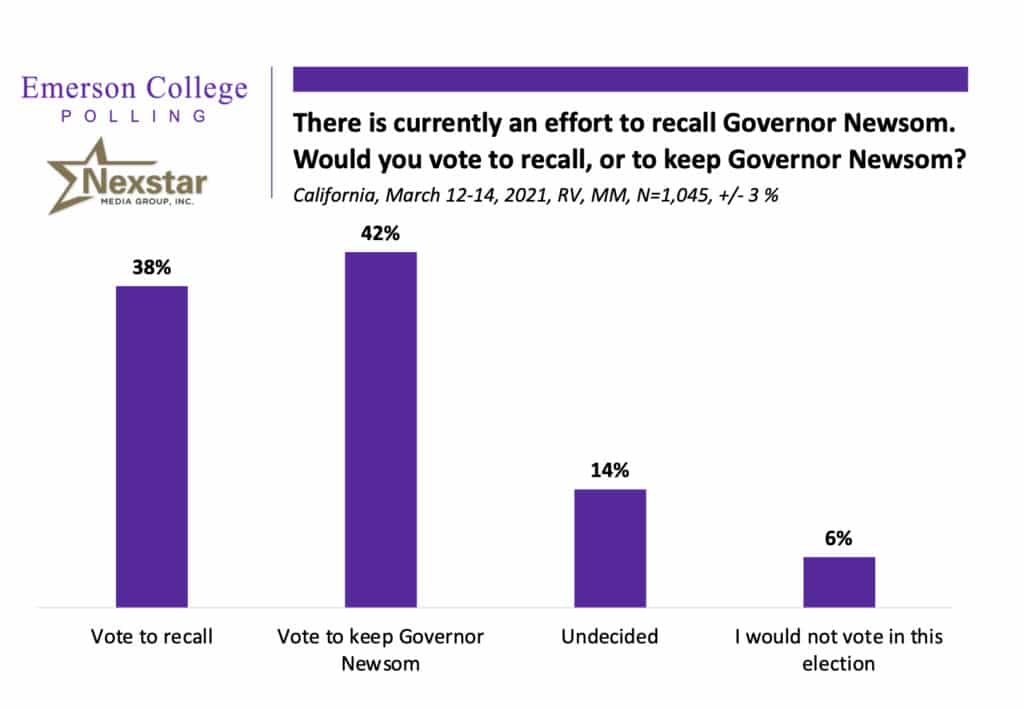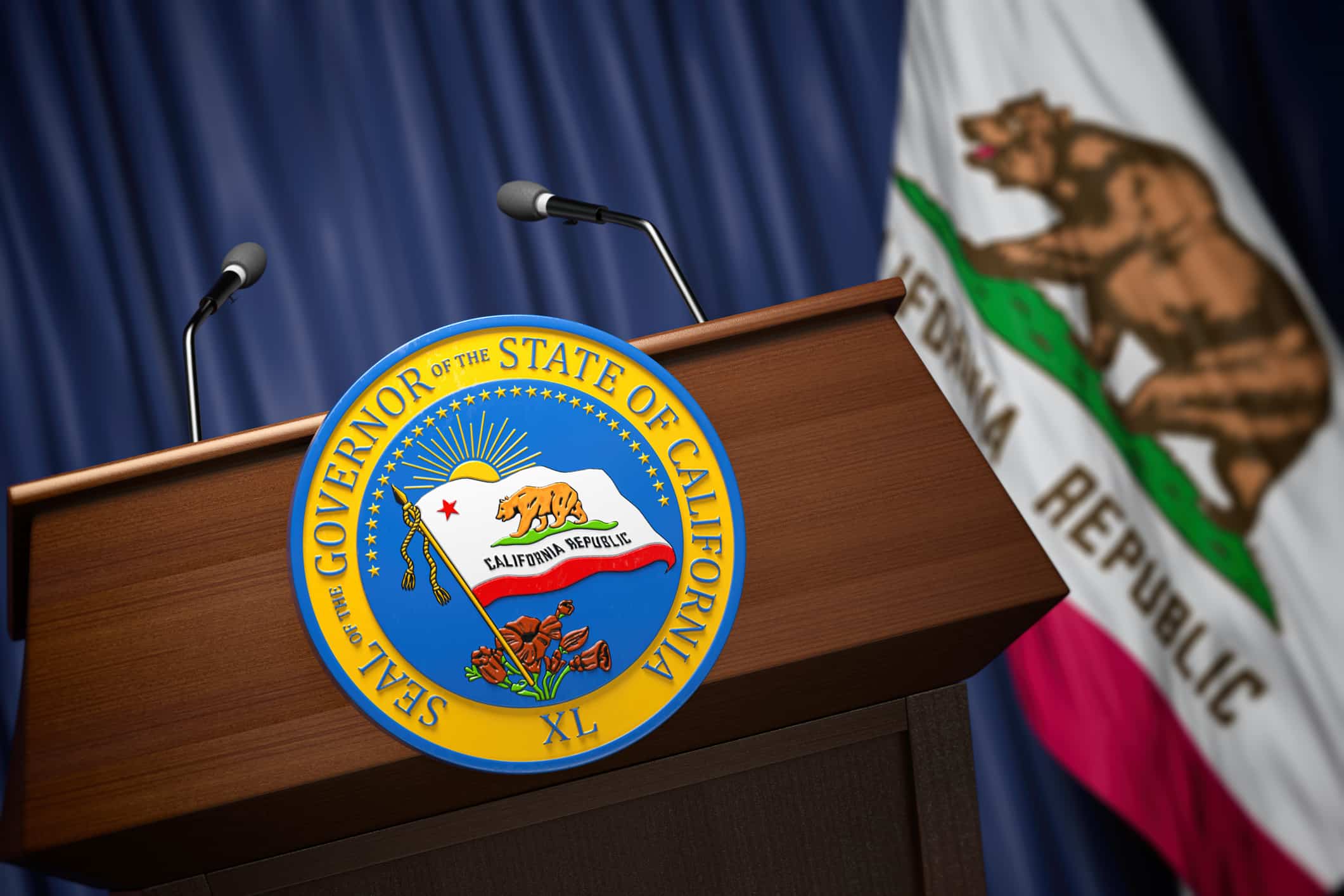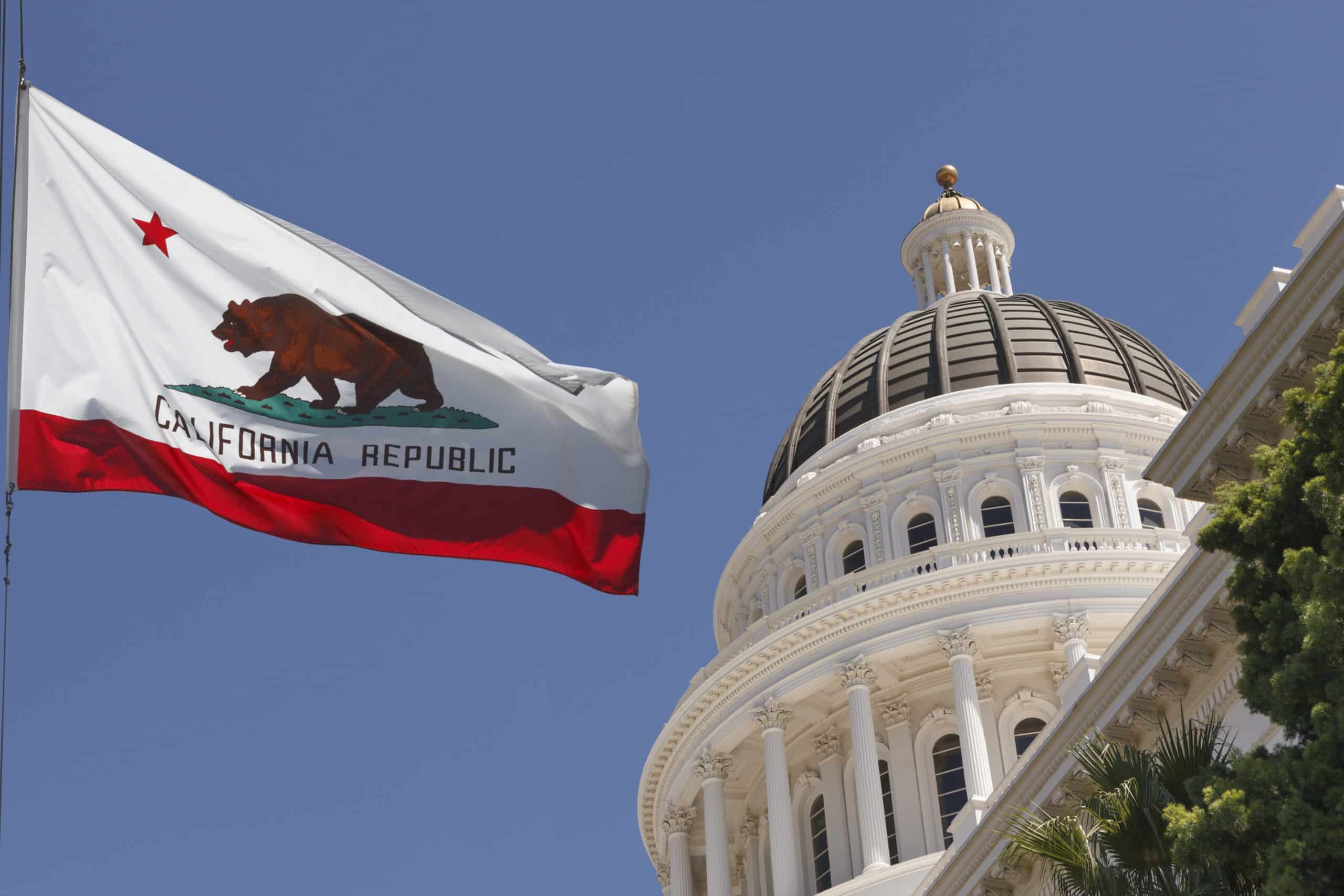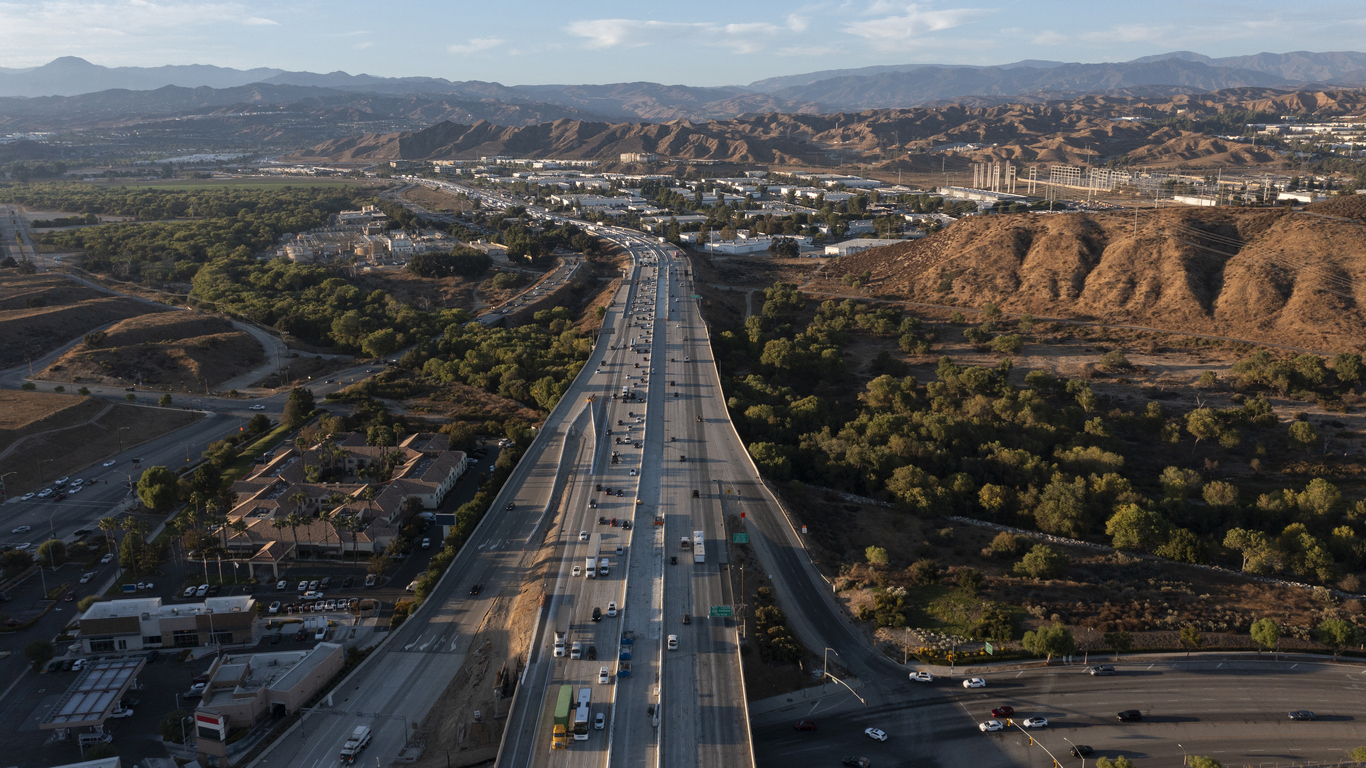Despite a majority (57%) of Californians thinking the state is headed in the right direction, Governor Gavin Newsom is struggling to keep his job approval above water at 42% approval and 40% disapproval, while 18% are unsure or have no opinion. President Joe Biden has a favorable job approval in California, at 54% approval and 31% disapproval. When asked about the effort to recall Governor Newsom, 42% of California voters said they would vote to keep Newsom, 38% would vote to recall, and 14% were undecided. Six percent (6%) said they would not vote in a recall.

Spencer Kimball, Director of Emerson Polling notes that “part of the issue for Governor Newsom is his management of the Covid-19 pandemic, where voters are split in their approval, at 45% approval and 44% disapproval. However, his falling popularity doesn’t appear to be caused by the mask mandate, as a majority (51%) of Californians think it is the right measure, compared to 23% who think it doesn’t go far enough and 26% who said it goes too far.”
Additionally, another part of the effort to recall Governor Newsom could be the economic state of California after Covid-19, as 39% of voters think California is on the wrong path for economic recovery after Covid-19, compared to 36% who say things are on the right path and 25% who are unsure at this time.
When voters were asked if they would consider voting for another Democrat besides Governor Newsom in a potential recall election, 52% said no and 48% saying they would. A majority (58%) of Democrat and Independent (55%) voters would be open to another Democratic candidate besides Newsom.
A plurality (27%) of voters said they are extremely interested in the potential recall election, with another 17% very interested and 23% moderately interested. Only 13% report only a little interested and 20% of voters said they are not at all interested.
Voters were split on how they thought the recall election would affect California, with 44% saying it was overall a bad thing for California and 43% thinking it would be a good thing, while 13% were undecided. However, when asked how they would characterize the California recall election, a strong majority (72%) said it was a good example of the democratic process, while 28% said it was a threat to democracy.
Spencer Kimball, Director of Emerson College Polling, said “if Governor Newsom is able to survive the recall, he will have his work cut out for him in 2022 as 58% of voters think it is time for someone new, while only 42% say they would re-elect Governor Newsom.”
Covid-19 recovery and top issues
The top issue for California voters is Covid-19 at 22%, followed by homelessness at 19%, corrupt politicians at 18%, and housing costs at 14%. No other issue topped 6%. Among Hispanic and Latino voters in California, homelessness ranks as the most important issue at 29%.
A plurality (47%) of California voters report that they plan to be vaccinated as soon as they are able, while 20% of the sample has already been vaccinated. Another 13% of voters said they are planning to take the vaccine, but not right away, and 21% saying they do not plan on receiving the Covid-19 vaccine. Among Republicans, a plurality (47%) say they do not plan on being vaccinated.
When asked about the roll-out and distribution, 9% report California is doing an excellent job in its roll-out, while 34% said the roll-out is good, 37% said it is fair, and 20% of voters said the vaccine roll-out in California is poor. Those with a high school education or less and those who are Hispanic/Latino were more likely to rate the roll-out and distribution as poor.
Regarding how informed voters are on when they will be eligible to receive the vaccine, 43% said they were very well informed, 38% said somewhat informed, 14% said not very informed and 6% said not at all informed.
A majority (50%) of California voters said they are not yet ready to eat indoors at a restaurant at this time, while 44% saying they would and 7% are unsure. By age, those 50 and older tend to be more likely to eat inside (49% yes) than those under 50 (40% yes).
Regarding attending an outdoor sporting event, 46% said they would not at this time, 43% said they would, and 11% are unsure. The same age trend continued with those 50 and older more likely to attend an outdoor sporting event (49%) compared to those under 50 where about 38% would attend.
Spencer Kimball, Director of Emerson College Polling, said “the data suggests the age difference is not being driven by who is vaccinated but instead by the 21% who said they don’t plan to get the vaccine: 77% of them plan to eat at an indoor restaurant and 70% of those who don’t plan to take the vaccine will attend a sporting event, suggesting those most vulnerable to getting Covid will be at these events.”
African American/Black respondents saw the greatest difference between the two activities with 31% who said they would go to an indoor restaurant while 57% said they would go to an outdoor sporting event. Whites reported 51% willing to go to an indoor restaurant with 46% saying they would go to an outdoor sporting event, Hispanics/Latinos reported 43% and 41% with Asians being the most consistent with 26% saying they would go to the indoor restaurant and 26% reported willing to go to an outdoor sporting event.
The Royals
Voters weighed in on the Royal family issue, with 35% reporting they believe Meghan and Harry are more trusted than the Royal family, while 19% said they trusted the Royal family over the couple. A plurality (46%) was unsure.
A majority of voters, 69%, report not following the news regarding the Royal Family and Prince Harry and Meghan Markle, while 9% said they are following it very closely and 22% they are following it somewhat closely.
Kimball says that “this current event does not appear to be capturing the attention of most California voters like the recall election is, but for those who are watching closely they trust Meghan and Harry 62% to 25%.”
Caller ID
The California Emerson College/Nexstar Media Group poll was conducted March 12-14, 2021. The sample consisted of California registered voters, n=1,045, with a Credibility Interval (CI) similar to a poll’s margin of error (MOE) of +/- 3 percentage points. The data sets were weighted by gender, age, education, race, party affiliation, and region. It is important to remember that subsets based on gender, age, party breakdown, ethnicity, and region carry with them higher margins of error, as the sample size is reduced. Data was collected using a cellphone sample of SMS-to-web, and an online panel provided by Amazon MTurk.







